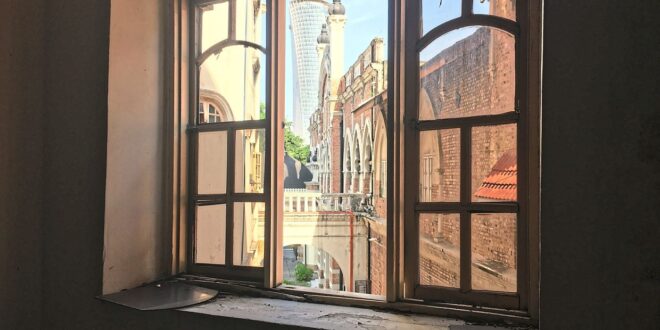WITH less than 20 months until Visit Malaysia Year 2026 (VMY2026), Kuala Lumpur is gearing up for one of its most significant events since the onset of the Covid-19 pandemic.
Minister in the Prime Minister’s Department Dr Zaliha Mustafa, who is responsible for the Federal Territories of Kuala Lumpur, Putrajaya and Labuan, faces the challenging task of preparing the capital city for this much-anticipated occasion.
In an exclusive interview with StarMetro, Dr Zaliha revealed that while the Tourism, Arts and Culture Ministry was to oversee VMY 2026 as the secretariat, there was a special committee comprising Kuala Lumpur City Hall (DBKL) and agencies such as the Social Welfare Department dedicated to readying the city for the event.
Dr Zaliha faces the challenging task of preparing the capital city for VMY2026.
Dr Zaliha, who recently completed her 100 days in office, said efforts were underway to ensure Kuala Lumpur would be prepared for VMY 2026.
“A special committee was established during a recent Cabinet meeting, chaired by Prime Minister Datuk Seri Anwar Ibrahim, with subsequent sessions to be led by Deputy Prime Minister Datuk Seri Ahmad Zahid Hamidi.
“As the nation’s capital, Kuala Lumpur will be the primary focus and the initial destination for tourists. We have a lot of groundwork ahead.
“Are we prepared? Frankly, all the necessary elements – heritage sites, parks and such – are in place.
The FT Minister says Kuala Lumpur has all the necessary tourism products like heritage buildings and parks that just need proper maintenance. — Photos: IZZRAFIQ ALIAS, AZMAN GHANI, WILLIAM GARY/The Star
“We have the products, they simply require proper maintenance,” Dr Zaliha said.
Addressing the issue of sprucing up the city’s historical buildings, the minister responded to calls from various stakeholders advocating for Unesco status for the heritage enclave of Jalan Raja and Kampung Baru in the city centre.
She clarified that Kuala Lumpur did not meet the criteria for Unesco recognition.
“It is not as straightforward as people think it is, to obtain Unesco status,” she said.
“The process involves three qualifying rounds: Heritage site, National Heritage site, and then Unesco Heritage site, each with stringent criteria.
“Even if we attempted, we wouldn’t qualify. That is why I said in Parliament that we won’t apply for Kampung Baru (for Unesco recognition) because our priority is the redevelopment of Kampung Baru,” she said.
“Furthermore, seeking Unesco status would restrict our ability to develop Kampung Baru.”
Dr Zaliha: There won’t be any Unesco status application for Kampung Baru because the priority is to redevelop it.
Dr Zaliha also acknowledged the deterioration of heritage buildings in the vicinity of Jalan Raja.
“It is sad but the good news is that Khazanah, through Think City, is now tasked with revitalising these buildings in alignment with the Prime Minister’s vision.
“However, we need to give them time,” she said.
“On the other hand, during my visits to the site with relevant agencies, I observed poor rubbish management and unpleasant odours,” she added.
Dr Zaliha also expressed concern about tackling homelessness within the city, citing it as a significant obstacle.
“I have engaged with all stakeholders and relevant agencies to understand the complexity of the challenge ahead.
Khazanah via Think City has been tasked with revitalising heritage buildings in the vicinity of Jalan Raja.
“It is clear that we can’t tackle the issue of homelessness in Kuala Lumpur alone. We require the cooperation of all parties involved,” she noted.
Dr Zaliha elaborated on the existence of transit homes in the city for the homeless to access basic necessities.
“We also need to work and collaborate with NGOs in coordinating the meal distribution sessions,” she said.
Transitioning to meet the challenges of her role, Dr Zaliha, a 59-year-old medical doctor who previously served as the Health minister, acknowledged the distinct nature of her responsibilities.
She reflected on her activist background and the adaptability required in her current role, particularly in addressing issues such as development, poverty and homelessness in Kuala Lumpur.
Regarding the Draft Kuala Lumpur Local Plan 2040 (KLLP2040), Dr Zaliha highlighted the ongoing review process and encouraged feedback from stakeholders.
Dr Zaliha says the cooperation of multiple agencies is necessary to tackle the issue of homeless people in the city. — Filepic
She acknowledged the importance of addressing future changes to accommodate infrastructure, housing, demographics and environmental concerns.
“I am happy to know that the residents are actively participating in the review process and are very vocal about it – which I appreciate.
“It is better to have your say now than after the KLLP2040 is gazetted,” she said.
On the topic of local government elections, Dr Zaliha echoed the stance of Housing and Local Government Minister Nga Kor Ming, emphasising that implementing such elections was not presently a priority.
“We revived the Federal Territory Residents Representative Council (MPPWP) and the Federal Territories Minister Council as platforms for channelling feedback on policy matters as well as other issues,” she said.
She highlighted the importance of keeping communication channels open with MPs and stakeholders.
“I am also in a WhatsApp group with the MPs, so I am aware of their concerns and we are on top of things,” Dr Zaliha assured.
 BeritaKini.biz Berita Viral Terkini di Malaysia
BeritaKini.biz Berita Viral Terkini di Malaysia





